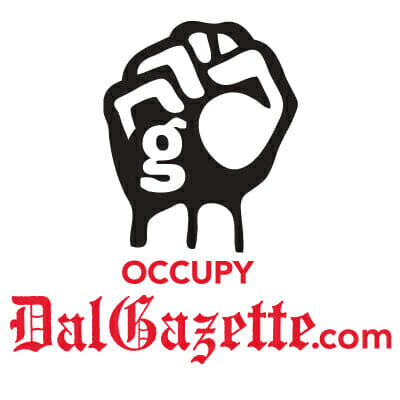
Student stayed in New York
Aaron Beale thought the Occupy Wall Street movement was a phenomenon worth seeing. So when he heard about a bus of Dalhousie students heading to New York City, he hopped on board. A few days later, when the others were preparing to go home, Beale decided he wasn’t ready.
“The world’s messed up. Capitalism is going to destroy us. We are either going to die from environmental destruction, nuclear war or killing each other with machetes unless we do something about the world,” says Beale.
That concern, mixed with curiosity, pushed Beale to choose the hard ground of Zuccotti Park over his warm bed in Halifax. By staying in New York, Beale was able to get involved with a direct action subcommittee that was involved in the organization of the rally that hoped to shut down the stock market Nov. 15.
The goal of the rally was to block every entrance into the New York Stock Exchange to restrict traders’ access. On the planned rally day, the stock market’s opening bell rang 15 minutes late. Beale does not consider it an accomplishment.
“Ultimately the police tactics were really violent and we didn’t have enough people to combat that,” Beale says.
He says the police used violence against the protestors on the day of the rally and in the days leading up to it. On the Tuesday before the rally, police raided Zuccotti Park in the early hours of the morning.
“I was right beside a cop who got really emotional and freaked out and punched an old lady. He didn’t know it was an old lady, but the lady fell back— just because we were all standing along a barricade,” says Beale.
That “old lady” was not the only victim. Beale says one of his friends was beat up in a police van, another on the sidewalk. And Beale himself was pepper sprayed during the first rally, as he tried to help another woman. The police tried to arrest him afterward, he says, but he ran away.
The police raided Zuccotti Park a second time the following night. Beale says during both raids police used an unnecessary amount of force to smash instruments and to throw out library books, socks and food that belonged to protestors.
Despite this behaviour, Beale did see humanity in one police officer.
“Weirdest thing there; I saw a police officer cry just because she saw police beating people up and she was really so sad that that was happening and that she was a part of it,” says Beale.
“She was just taking orders.”
But she was an exception in a police response to what Beale calls a peaceful protest. His group’s protest tactic: a dance party on the street.
“And that provoked five arrests somehow— dancing and singing on the street,” says Beale.
Ironically, he says the violence used by police is counterintuitive: it actually motivates the protesters. During the first rally, Beale says people were so angry with police they started to react.
“It’s like together, the police have been pissing us off for days, illegally and unwarranted, and so people just started taking down the barricades, and it was a great moment,” says Beale. He says the violence towards protestors has helped people get a sense of their collective power as people. Because of that, he can’t see the protests ending anytime soon.
But he also doesn’t think the Occupy movement will lead to the ultimate end some people are hoping for.
“I think Occupy is like the manifestation of people’s discontent with the way the world’s going, and it’s great in a lot of ways but is also problematic.” He says the movement is disorganized, ideologically incoherent, inarticulate, inefficient, and far too pluralist. In other words, it lacks focus.
But despite its problems, Beale says Occupy has the right intentions. “Capitalism screws us all over,” he says. “I think we’re all economically, socially, mentally, emotionally and spiritually fucked up.”







